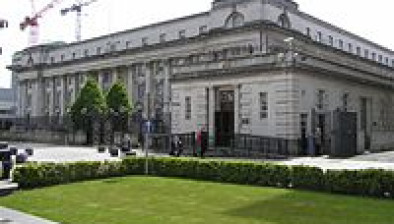Court of Appeal: County Registrar taxation determination quashed

The Court of Appeal has quashed a determination of the Waterford County Registrar where there was no evidence that the principles in s.141 of the Legal Services Regulation Act 2015 were applied.

About this case:
- Citation:[2025] IECA 110
- Judgment:
- Court:Court of Appeal
- Judge:Ms Justice Niamh Hyland
Delivering judgment for the Court of Appeal, Ms Justice Niamh Hyland found: “Section 141 is unambiguous in its terms. The County Registrar was obliged to have regard to the principles specified in Schedule 1 of the 2015 Act. There is no exception to its application, even where a differential costs order means that the County Registrar is adjudicating on costs at a District Court level.”
Background
The appellant sustained personal injuries having tripped over a defect in a public footpath in Dungarvan, Co Waterford.
A fully contested hearing took place in Dungarvan Circuit Court in December 2021, following which the appellant was awarded damages of €8,000.
The Circuit Court also made a differential costs order allowing the appellant the costs that would have been recoverable had he commenced proceedings in the District Court, having regard to the amount of damages awarded.
The appellant’s solicitors prepared a bill of €32,986.89 for adjudication at a taxation of costs hearing before the County Registrar, recovering only €8,7655.78.
The High Court
Thereafter, the appellant issued judicial review proceedings seeking inter alia to quash the taxation determination.
The appellant contended that the Schedule of Costs in Schedule 3 of the District Court Rules 2014 and Order 53 Rules 2(1), 2(2) and 13 of the District Court Rules 1997-2014 (DCR) were ultra vires and unlawful and that the District Court scale should be struck down.
In that regard, the appellant submitted that in circumstances where the District Court scale “rolled up” a number of steps into one item and provided for only one fee for obtaining judgment where the case was defended, it constituted an unlawful restriction on the amount of costs recoverable in breach of s.17(4) of the Courts Act 1981 (as amended) and could not be treated as the “doing of a specified thing” for the purposes of s.17(4).
The appellant also contended inter alia that his right of access to the courts was breached and that the County Registrar’s adjudication was in breach of s.141 of the Legal Services Regulation Act 2015, the County Registrar having failed to apply the principles relating to legal costs specified in Schedule 1 thereof.
In the High Court, judgment was given by Mr Justice Anthony Barr rejecting the appellant’s challenge to the District Court scale and the determination of the County Registrar. The appellant filed a notice of appeal.
The Court of Appeal
Ms Justice Hyland considered the wording of s.17(4), noting that the section starts by setting out a general approach being that rules of court should not restrict the amount of costs.
The court then considered the “two very significant exceptions” to that approach in s.17, the first of which is that it is permissible if rules of court provide for a restriction to reflect the principles of differential costs orders and the second of which provides that rules may fix the amount recoverable for the costs incurred by a person in the doing of any specified thing in any action or other proceeding.
Ms Justice Hyland highlighted that the essence of the appellant’s claim was that he should have received Circuit Court costs for a case that should have been brought in the District Court, “the antithesis of the differential costs orders that s.17 provides for”.
The judge observed that “the real challenge maintained by the appellant is not so much that the obtaining of a judgment cannot be the doing of any specified thing in any particular form of action, since it manifestly can; but rather that Order 53, Rule 2(1), which provides that the costs specified in each scale are the only lawful costs, is incompatible with the general rule in s.17(4) as it means that the appellant cannot recover the entirety of the costs he deems appropriate”.
The court had regard to the policy considerations underlying the fixing of a scale of costs, noting the appropriateness of providing certainty in respect of the level of costs recoverable, the requirement of proportionality between the damages awarded and the costs incurred in obtaining that award and the simplicity of the District Court system.
Ms Justice Hyland further considered that aside from his failure to set out the steps which he believed that he ought to have been remunerated for, the appellant failed to refer to additional fees provided for in the scale which he was entitled to seek, including for interim applications on notice and additional respondents separately represented.
The judge also pointed out that to the extent that the appellant argued that his solicitor was not remunerated for work carried out, he gave no consideration to the flexibility in Order 53 which allows for applications to be made for items to be specially treated where special circumstances are established.
Finding that the DCR and Schedule were not incompatible with s.17(4), the Court of Appeal upheld the decision of the trial judge.
As to the appellant’s contention that the County Registrar failed to apply the principles referred to in s.141 of the 2015 Act, the Court of Appeal disagreed with the High Court’s finding that there was no evidence to contradict the presumption that the County Registrar applied the correct criteria to his assessment of the reasonableness of fees.
Noting that there was uncontradicted sworn evidence from the appellant’s solicitor in support of this argument and that no party had procured a copy of the digital audio recording of the taxation hearing, the judge turned to consider the determination of the County Registrar.
Recognising that in circumstances where the determination gave careful reference to the applicable legislation and the DCR, Ms Justice Hyland had “no doubt that he would have identified s.141 had he considered same”.
Notwithstanding that the appellant had not raised the issue of s.141 before the County Registrar, the Court of Appeal quashed the determination of the County Registrar in circumstances where the obligation to apply the Schedule 1 principles referred to in s.141 of the 2015 Act “is so clear and the nature of the breach is so absolute”.
The court also concluded that contrary to the appellant’s submissions, his right of access to the court was not breached by the costs regime in circumstances where he had exercised his right of access to the court and had obtained a decree of damages.
In this regard, the court emphasised: “Simply showing that there is discrepancy between the amount he was awarded and the bill of costs that he submitted cannot amount to an assertion of denial of access to the courts.”
Finally, the Court of Appeal agreed with the High Court’s finding that Order 53 DCR and the Schedule thereto were not ultra vires the power of the Rules Committee to make rules for the District Court under s. 91 of the Courts of Justice Act 1924, where same involve matters of practice and procedure in respect of questions of costs within the meaning of s.91 of the 1924 Act.
Conclusion
Accordingly, the Court of Appeal allowed the appeal in part to the extent that the taxation determination would be quashed and the matter remitted back to the County Registrar.
Nolan v County Registrar for the County of Waterford & Ors [2025] IECA 110










